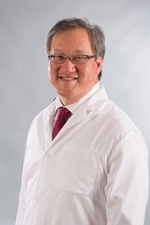COVID-19 is the great disruptor, but for cancer patients, it’s one added threat to their lives.
Dr. Peter Yu, physician-in-chief of the Hartford HealthCare Cancer Institute, said that while everyone’s lives are disrupted as a result of the COVID-19 pandemic, for patients with cancer, it is one added layer of concern.
“That’s their normal – they wake up and go to sleep worrying about a life-threatening disease they do have, then layer in this disease called COVID,” he said.

The virus poses a “double threat” to cancer patients, Dr. Yu added. This is on top of their cancer and its related treatments, which compromises their immune system.
In conversations with oncology colleagues across the country and the globe, he said the Cancer Institute has made some adjustments to this “new world.”
“There are certain principals we adhere to and discuss among ourselves and our colleagues,” Dr. Yu said. “But we have changed some treatments.”
Changes include:
- Reversing the order. Typically, oncologists send patients for surgery to remove the cancer, and then follow up with chemotherapy or radiation therapy. To keep cancer patients out of the hospitals, which Dr. Yu called one of the “most dangerous places” for them during the pandemic, Cancer Institute providers are flipping treatments so patients report for chemotherapy or radiation first. Surgery will follow “later when it’s safer,” he said.
- Tapping technology. Radiation treatments are traditionally given daily for five to six weeks, but that requires the patients to “be exposed to an environment where there are sick people,” Dr. Yu said. Using an alternative technology called “hypofractionation,” the Cancer Institute has reduced treatments to as few as five days.
- Chemo changes. Several possible alternatives are being employed for chemotherapy patients. Dr. Yu said there are scheduling changes that reduce the number of times the patient needs to come into the office for chemotherapy treatments. Some patients might be given their chemo orally instead of intravenously; and regimens might be switched to avoid some of the drugs that dangerously suppress the immune system.
“In taking these steps, we can keep patients on track with their treatments and lower their risk for contracting COVID-19,” Dr. Yu said.
For more information about the Hartford HealthCare Cancer Institute, click here.
Not feeling well? Call your healthcare provider for guidance and try to avoid going directly to an emergency department or urgent care center, as this could increase the chances of the disease spreading.
Need to see your doctor? New Patient? For more information about Hartford HealthCare virtual health visits, click here.
Click here to schedule a virtual visit with a Hartford HealthCare-GoHealth Urgent care doctor.
Stay with Hartford HealthCare for everything you need to know about the coronavirus threat. Click here for information updated daily.
Questions? Call our 24-hour hotline (860.972.8100 or, toll-free, 833.621.0600).
Get text alerts by texting 31996 with COVID19 in the message field.

